|
Ah, summer. The sun is shining. The beach is calling. There’s much more time for leisure (which is so important! Read Pieper if you need convincing.). For me, more leisure means more time to read and write and consequently, more time to explore the beauty of our faith.
Here’s what I’m reading this summer:
2. Four Quartets by T.S. Eliot Speaking of works I will revisit for the rest of my life, I read Four Quartets multiple times a year, including every summer. I mentioned this genius work in a previous blog, and must bring it up again. This four-part poem from Eliot isn’t the lightest read, but there are plenty of commentaries out there for guidance. I recommend Dove Descending: A Journey into T.S. Eliot’s Four Quartets. Written after his conversion, Four Quartets can be read as a response to Eliot’s earlier, more famous and more despondent poem, The Wasteland. Whereas The Wasteland wonders whether a life of harmony and wholeness is possible in the modern world, The Four Quartets presents God’s plan for salvation history as not only possible, but ideal. And let me tell you, Eliot’s incredible verse is a spiritual game-changer. 3. Spiritual Writings by Flannery O’Connor, edited by Robert Ellsberg Flannery O’Connor never wrote formal ‘spiritual writings’; rather, this is a collection of her letters and other works that touch on spiritual topics. Her writing style is sharp and punchy and will have you on the edge of your seat. The collection includes one of Flannery’s more famous letters wherein she recounts her argument with a writer about the True Presence of Christ in the Eucharist. Flannery says to the writer who has just asserted that the Eucharist is mere symbol, “Well, if it's a symbol, to hell with it.” If you like literature of the American South, snappy comebacks, and/or want to join the Catholic hipster scene, Flan is your girl. 4. 40 Years with a Saint: Blessed Alvaro del Portillo on Saint Josemariá Escrivá by Cesare Cavalleri Saint Josemariá is a twentieth century saint who founded Opus Dei, a personal prelature in the Catholic Church that focuses on finding and serving God through everyday life. Opus Dei runs the Catholic Information Center in Washington D.C., where many young professionals like myself attend talks and social gatherings. This book is the thoughts of one saint on another saint. That’s pretty awesome. There are also many awesome YouTube videos with footage of St. Josemariá which I encourage you to watch; it’s wild that we live in an age where we have footage of saints in action! 5. Pier Giorgio Frassati: A Hero for Our Times by Cristina Siccardi Modern Catholic lore is full of epic stories about Blessed Pier Giorgio Frassati. One of my favorites is that he used to go to the local pool hall and hustle the other players. When he won, he didn’t take his opponents’ money, but instead had them spend an hour with the Blessed Sacrament. I picked up this book to verify these stories and to learn more about the man who proclaimed, "Verso l ‘Alto!" (“To the heights!”) It’s not disappointing. 6. Meeting Jesus Christ: Meditations on the Word by Msgr. J Brian Bransfield As Catholics, we tend to get a bad reputation for our lack of engagement with Scripture (even though every Sunday Mass is flooded with passages and references). This book helps us dive a bit deeper both familiar and more obscure Gospel passages. If you want to engage more with Scripture this summer, this book is a great place to start. 7. Laurus by Eugene Vodolazkin Everyone loves a good Russian novel and there are many (think Anna Karenina, War and Peace, Crime and Punishment, The Brothers Karamazov etc.). Laurus is a contemporary Russian novel about holiness. Laurus loses the love of his life when she dies giving birth, and the rest of the story is about how he comes to terms with his suffering and ultimately God. The book is extraordinary and the translation is superb. It’s also a great work of historical fiction, illustrating life in Russian during the Middle Ages. Comment below with what you are reading this summer! And don’t forget to check out the many Catholic Apostolate Center eBooks by clicking here! **This post was originally published on 7/16/2018**
0 Comments
Ah, summer. The sun is shining. The beach is calling. There’s much more time for leisure (which is so important! Read Pieper if you need convincing.). For me, more leisure means more time to read and write and consequently, more time to explore the beauty of our faith. Here’s what I’m reading this summer:
2. Four Quartets by T.S. Eliot Speaking of works I will revisit for the rest of my life, I read Four Quartets multiple times a year, including every summer. I mentioned this genius work in a previous blog, and must bring it up again. This four-part poem from Eliot isn’t the lightest read, but there are plenty of commentaries out there for guidance. I recommend Dove Descending: A Journey into T.S. Eliot’s Four Quartets. Written after his conversion, Four Quartets can be read as a response to Eliot’s earlier, more famous and more despondent poem, The Wasteland. Whereas The Wasteland wonders whether a life of harmony and wholeness is possible in the modern world, The Four Quartets presents God’s plan for salvation history as not only possible, but ideal. And let me tell you, Eliot’s incredible verse is a spiritual game-changer. 3. Spiritual Writings by Flannery O’Connor, edited by Robert Ellsberg Flannery O’Connor never wrote formal ‘spiritual writings’; rather, this is a collection of her letters and other works that touch on spiritual topics. Her writing style is sharp and punchy and will have you on the edge of your seat. The collection includes one of Flannery’s more famous letters wherein she recounts her argument with a writer about the True Presence of Christ in the Eucharist. Flannery says to the writer who has just asserted that the Eucharist is mere symbol, “Well, if it's a symbol, to hell with it.” If you like literature of the American South, snappy comebacks, and/or want to join the Catholic hipster scene, Flan is your girl. 4. 40 Years with a Saint: Blessed Alvaro del Portillo on Saint Josemariá Escrivá by Cesare Cavalleri Saint Josemariá is a twentieth century saint who founded Opus Dei, a personal prelature in the Catholic Church that focuses on finding and serving God through everyday life. Opus Dei runs the Catholic Information Center in Washington D.C., where many young professionals like myself attend talks and social gatherings. This book is the thoughts of one saint on another saint. That’s pretty awesome. There are also many awesome YouTube videos with footage of St. Josemariá which I encourage you to watch; it’s wild that we live in an age where we have footage of saints in action! 5. Pier Giorgio Frassati: A Hero for Our Times by Cristina Siccardi Modern Catholic lore is full of epic stories about Blessed Pier Giorgio Frassati. One of my favorites is that he used to go to the local pool hall and hustle the other players. When he won, he didn’t take his opponents’ money, but instead had them spend an hour with the Blessed Sacrament. I picked up this book to verify these stories and to learn more about the man who proclaimed, "Verso l ‘Alto!" (“To the heights!”) It’s not disappointing. 6. Meeting Jesus Christ: Meditations on the Word by Msgr. J Brian Bransfield As Catholics, we tend to get a bad reputation for our lack of engagement with Scripture (even though every Sunday Mass is flooded with passages and references). This book helps us dive a bit deeper both familiar and more obscure Gospel passages. If you want to engage more with Scripture this summer, this book is a great place to start. 7. Laurus by Eugene Vodolazkin Everyone loves a good Russian novel and there are many (think Anna Karenina, War and Peace, Crime and Punishment, The Brothers Karamazov etc.). Laurus is a contemporary Russian novel about holiness. Laurus loses the love of his life when she dies giving birth, and the rest of the story is about how he comes to terms with his suffering and ultimately God. The book is extraordinary and the translation is superb. It’s also a great work of historical fiction, illustrating life in Russian during the Middle Ages. Comment below with what you are reading this summer! And don’t forget to check out the many Catholic Apostolate Center eBooks by clicking here! Not long ago, I sat listening to the words of my university’s honored commencement speaker, Peggy Noonan, who entreated us to do something after we graduated that day: “You must not stop reading books. That’s all. If you seek a happy and interesting life, one of depth, meaning and accomplishment, you must read books.” I thought that to be a simple message—but refreshingly concrete and unique. As she pointed out, to get to graduation day my peers and I had read a number of books. Most were works assigned as required reading for a course rather than for leisure. Continuing to read after a life in school would benefit us, Noonan said, as we moved through life to new places, with new people, and into new positions.
As a Catholic, I took Ms. Noonan’s advice as an opportunity to seriously take up spiritual reading. I previously had taken advantage of my Catholic high school’s library to some degree, but I often had to let spiritual reading take second place behind the demands of other commitments. This continued in college with the much larger university library collections. There seemed to be no time to read for the sake of reading, spiritual or otherwise. While I may not have had much choice at the time, I know that when the faithful disregard the great literary works of Catholicism, we do ourselves a great disservice. With its full and ever-expanding breadth of writings, the Church encourages the faithful to enrich themselves through the works of popes, saints, and the Magisterium, along with theologians, mystics, clergy, and religious (see CCC 133). These can offer many insightful perspectives on the Faith, but they cannot replace reading the Bible! As St. Jerome remarked, “Ignorance of Scripture is ignorance of Christ!” Similarly, the Second Vatican Council affirmed the Word of God as “food for the soul, the pure and everlasting source of spiritual life.” (Dei Verbum, 21) We may spend years studying books for school and for professional development—how much more should we pore over the Word of God “to build you up and give you your heritage among all those who are sanctified”? We nourish ourselves with physical food multiple times a day, shouldn’t we do the same with spiritual nourishment? When I worked in a Catholic bookstore, my boss shared this insight from St. John Bosco: “Only God knows the good that can come about by reading one good Catholic book.” Customers might have wandered in to buy a rosary or Catholic memorabilia, but many times I noticed them stop in front of a display of books on family life, spirituality, or healing prayers. As I assisted them with their selections, many would share their favorite devotions or ask for guidance in selecting a title. The customers were seeking writings by those whose experiences they could relate to—authors whose work would speak to our customers just as Sacred Scripture speaks to each of us and motivates us to seek and undertake the will of God. On other occasions, customers would simply be looking for something new to deepen their spirituality and share what they learned with their family and friends. I have observed that the benefits of supporting Catholic bookstores extend in many ways: not only does it help a business to continue providing accessible, quality literature, but it also offers customers the chance to find something meaningful and wholesome that will be useful in subsequent questions, reflections, and experiences long after the first reading. Consider dusting off your Bible or picking up that Catholic book on your table. Spend a few moments and allow yourself to be touched by the author’s message and then share the experience with loved ones. Start a book club with friends and neighbors to discuss a spiritual work and apply it to your day to day life. The words of an approved source can galvanize, console, clarify, educate, or guide your spiritual formation. As Ms. Noonan reminded us, continual reading throughout our lives, especially of spiritual works, will give our lives greater depth and meaning. Start by picking up the book. Questions for Reflection: Is there a spiritual book or book from the Bible you’ve been meaning to read? How has a book or Scripture passage impacted your life? Exult greatly, O daughter Zion! Shout for joy, O daughter Jerusalem! Behold: your king is coming to you, a just savior is he, Humble, and riding on a donkey, on a colt, the foal of a donkey. Zechariah 9:9 So begins the first liturgy of Holy Week on Palm Sunday. We hear these words referenced in the first of an unusual two Gospel readings during the procession into the church. We start our celebration of Palm Sunday, appropriately, by proclaiming and then reenacting the story in Matthew’s Gospel of Jesus’ entry into Jerusalem, a moment of great joy and excitement for the inhabitants of the city. Those in the congregation welcome the priest, who enters the church in persona Christi, as we echo the words of the people of Jerusalem, “Hosanna in the highest!” What a happy occasion! The Messiah, the One whom the prophets foretold, has come! How fickle this joy seems, though, when we get to the Passion narrative. In a matter of minutes, we go from crying, “Hosanna!” to “Crucify him!” One minute, we’re giving Jesus a king’s welcome. The next, we’re condemning Him to death. I know I’m not the only one who feels a dagger through his heart every time we say—loudly—that refrain of condemnation. How dare I welcome Christ with such exuberance, knowing what I’m about to do to Him? Quite the emotional roller coaster, with Mass only halfway over! Holy Week is exhausting. I find it the most taxing part of the liturgical year. Starting with Palm Sunday, I’m attending Masses, praying the Stations of the Cross, and singing with the choir for days on end, practically turning the Triduum into a 3-day long vigil. In recent years, I’ve taken to spending Good Friday on pilgrimage to the National Shrine in Washington, D.C., to place myself in an intentional state of prayer and reflection. So why do I do this to myself? Why get on this roller coaster and make myself so physically, emotionally, and spiritually drained by the time Easter morning arrives? Quite simply, it’s because I love it. It’s the most rewarding experience of prayer that I have all year. On Palm Sunday, we’re reminded of what we’ll bear witness to in the days to come. We’re invited to reflect on what’s about to be re-presented in a real-time reenactment of the focal point of Christ’s entire earthly life. At the Chrism Mass on the morning of Holy Thursday, we bear witness to the consecration of holy oils for use in the upcoming year’s sacraments. We also see the gathering of all our diocesan priests, who renew their vows and participate in probably the largest concelebration of the year. It’s a moving and impressive sight. Later on Holy Thursday, we see the reenactment of the Last Supper, the very institution of the Eucharist we celebrate to this day. We’re reminded, too, of the great humility we’re called to emulate: “If I, therefore, the master and teacher, have washed your feet, you ought to wash one another’s feet.” (John 13:14) On Good Friday, we once again take up the cries of, “Crucify him!” as we see the events of Christ’s Passion and death unfold before our eyes. We’re called toward the sanctuary to kiss the gruesome device of our salvation, the ancient instrument of punishment used to redeem all of mankind. And after an unceremonious Communion service, the liturgy suddenly pauses and we just go home. The Church holds its breath as we wait. And then, finally, the Easter Vigil—the happiest day of the year, of all history! We hear the no longer fickle, but truly joyous words of the Exsultet, the Easter Proclamation: Exult, let them exult, the hosts of heaven, exult, let Angel ministers of God exult, let the trumpet of salvation sound aloud our mighty King's triumph! Be glad, let earth be glad, as glory floods her, ablaze with light from her eternal King, let all corners of the earth be glad, knowing an end to gloom and darkness. If I arrive at Easter morning feeling exhausted but strengthened, it means that I've truly entered into Holy Week, walking with Christ as He always walks with me. This Holy Week, may we walk more closely with Christ on His journey towards the cross, knowing that this journey continues with His resurrection. It is Christ's resurrection, His triumph over sin and death, that gives our Lenten journey meaning and enables us to exult with the Church and be glad! Question for Reflection: How can you enter more deeply into Holy Week in order to better celebrate the joy of Easter Sunday? For more resources to prepare you for Holy Week and Easter, please click here. My Catholic grade school began everyday with students lining up in the gym for attendance and then filing out to class. One morning after Thanksgiving break, our usual routine was interrupted when the principal, a Sister of St. Joseph, came up to me.
She asked, “Would you like to be Mary for an Advent Mass?” I immediately blurted out an emphatic, “No!” The other fourth graders shot me shocked stares. It would have been a dream for many of my classmates to receive such an invitation, especially a personal one from the principal! And then, of course, they were astounded that I would dare to say no to the principal herself. “Are you sure?” she asked me again. “Well, umm, I just really don’t want to. I’m sorry,” I said. The disappointment spread across her face and I knew then that she was not expecting that answer either. An awkward pause came and went as teachers and students began marching to their rooms. Finally, I said, “Well, I mean, I guess I could do that for you.” The principal beamed and listed off a number of details, like who would be St. Joseph, and when we were to arrive to change into costume. I often think back to that encounter during Advent when I reflect on Mary’s “yes” and Joseph’s sacrifice. Why did I refuse to help with such certainty? It was out of character for my usual fourth grade self.. Maybe that day my stubborn will and insecurities showed their true colors! There is an irony to saying “no” to playing the part of Mary when her “yes” was prophesied by Isaiah and echoed in the message of the psalmists. The lives of St. Joseph, St. Paul, and the gospel writers were forever changed by that answer. Now, I’m grateful for changing my answer to yes for something simple. Like Mary, I received special graces to live out the big and small yeses to God in my adult life. The readings for this Fourth Sunday of Advent focus on the message of Emmanuel.They do a good job of showing how even in our wavering human nature, God is with us. Consider the gospel from this week, where a shocked St. Joseph allows God to turn his “no” to a “yes.” I like to imagine St. Joseph’s shock after hearing about Mary’s pregnancy. He responds to the news with a dignified “no,” hoping to protect both himself and his young fiancee, until an Angel shows him the workings of the Holy Spirit in his and Mary’s lives. His sacrifice and hiddenness guides us in family life, work, ministry, and sharing the the gospel message in a noisy world. His “yes” wavered and then seemed to move to a place of confidence and trust. “Joseph, son of David, do not be afraid to take Mary your wife into your home.” (Mt 1:20) What reassurance! God was with him as he transitioned to being the head of the Holy Family, he became the ultimate protector of holiness. After the Marian story from my fourth grade year to the touch points of this weekend’s Gospel the message of Emmanuel lives. We prepare for Christmas this week with the demands of a commercial culture, family time, the healing of relationships, and the stress of “keeping up”. God is with us, waiting as he did through Isaiah and St. Paul, and the call of St. Joseph. What will we say “yes” to this week? How will God be with us in our moments of “no.”? When your fear or pride brings the word “no” to your lips, remember that God is still with you. As we await our Lord this Advent remember that he too awaits us and our emphatic “yes”. May your final week of Advent be blessed! Sophie Lorenzo works in social media marketing for a Catholic publisher in Chicago. An alum of the Echo Program at the University of Notre Dame, she enjoys bridging her background in theology with online ministry. 9/1/2016 Reading the Book of Creation: Reflections on the World Day of Prayer for the Care of CreationRead NowOn the Feast of the Transfiguration, August 6, 2015, Pope Francis established the “World Day of Prayer for the Care of Creation” to be celebrated annually on September 1. In doing so, the Holy Father shared his concern for creation with Ecumenical Patriarch Bartholomew, who initiated a similar day of prayer in the Orthodox Church in 1989. For Pope Francis, the World Day of Prayer for Creation reminds Catholics of our “vocation to be protectors of God’s handiwork,” a calling and responsibility which is “essential to a life of virtue; it is not an optional or a secondary aspect of our Christian experience” (Laudato Si’ 217). As we celebrate this second annual World Day of Prayer for Creation, it is fitting to reflect on our vocation as Catholics to care for creation. Though we have a long-standing tradition of caring for creation that goes back to the early Church Fathers and has been promoted more recently by Pope Emeritus Benedict and Pope St. John Paul II, Pope Francis has brought this aspect of our faith into the limelight. I believe there are two main reasons for this: conversion and evangelization. The ecological crisis, the Pope tells us, is a summons to profound spiritual conversion that leads to developing a deeper relationship with the world around us and recognizing that “the life of the spirit is not dissociated from the body or from nature or from worldly realities, but lived in and with them in communion with all that surround us” (LS, 216). We are called to live in the world, not apart from it. We get to the spiritual through the physical. Pope St. John Paul II also taught us this in his Theology of the Body. This conversion also involves recognizing our sins against creation. In Laudato Si’, Pope Francis reminds us that “human life is grounded in three fundamental and closely intertwined relationships: with God, with our neighbor and with the earth itself” (LS, 66). Our faith exhorts us to live well, not only with God and with our neighbor, but also with the earth. One practice for this World Day of Prayer for Creation could be to examine our consciences and consider how we have treated the created matter with which we have been entrusted. Have we been selfish and unconcerned for the needs of others, consumeristic, gluttonous, unaware of the gift that creation is to us? Perhaps we have wasted food, water, or energy unnecessarily. Perhaps we watched hours of Netflix when we could have been outside walking with a friend, serving the poor, or contemplating nature. Do we feel compelled to have the latest iPhone or the largest car? Our Holy Father points out that we need to “replace consumption with sacrifice, greed with generosity, wastefulness with a spirit of sharing,” and he quotes Patriarch Bartholomew in exhorting us to cultivate “an asceticism which ‘entails learning to give, and not simply to give up. It is a way of loving, of moving gradually away from what I want to what God’s world needs.’” (LS, 9). In our process of conversion we can follow the example of Pope Francis’ namesake, St. Francis of Assisi, in doing the inner work needed to embrace creation as “Brother” and “Sister.” I believe that Pope Francis, like the two popes preceding him, also sees our Catholic concern for ecology as a path into the New Evangelization. The beauty of creation speaks to the heart and can awaken human persons to a deep interior longing for the divine source, for the Creator God. Great spiritual writers like St. Bonaventure called the created world the “book of creation,” because the created world is constantly speaking to us of God. As humans we learn to understand the language of creation by spending time outside, by developing a heart for creatures, by learning to see the vestiges of God’s love in the beauty, diversity, and extravagance of the natural world. In doing so, we come closer to God and to understanding his plan for us and for the world. It’s a two-way street: We need to learn the language of creation in order to better care for the created world. At the same time, in that conversation, we are drawn into a deeper relationship with God, the Creator. As we experience this ourselves, we are driven to share the experience with others in a new kind of evangelization. In our fast-paced world, being attentive to creation reminds us that “we are not God” (LS, 67), for if we pause and look at the beauty surrounding us, we experience a beauty that transcends anything we humans can create. At the same time, we become aware of our unique creation as humans and the moral structure inscribed into our very nature (LS, 155). Being outdoors is also a healing tonic to assuage the effects of technology and the pressures of the virtual world in which we spend so much of our time. It is an antidote for the “technologization” of society and keeps us in touch with true reality. Let us then, as we celebrate this World Day of Prayer for Creation, embrace with joy the opportunities for conversion and evangelization that lie ahead! Click here for more resources on ecology, the World Day of Prayer for Creation, and Laudato Si.
Like most high school students, I had a yearly summer reading list to complete before the start of the next school term. One summer, I was required to read “The Five People You Meet In Heaven” by Mitch Albom. Reading this book was a “light bulb” moment for me. One line from the book stuck with me: “There are five people you meet in heaven. Each of us was in your life for a reason. You may not have known the reason at the time, and that is what heaven is for.”
After reading that line, I knew there had been individuals placed in my life for reasons I came to realize after reflection, as well as for reasons yet to be revealed. This week, I continued my reading of “The Discernment of Spirits”, Saint Ignatius’ teaching further interpreted by Fr. Timothy M. Gallagher, O.M.V., and I was reminded again of how God places individuals in our lives for a reason. In Saint Ignatius’ rule No. 2 of the discernment of spirits, he explains how people seeking God find encouragement, strength, courage, consolation, inspiration, and ease so that they may go forward in doing good. To dissuade us from following the path toward God, the evil spirit gives us anxiety, saddens us, and places obstacles in our way so that we are disquieted with false reasons to fall away from doing God’s will. Temptation takes many forms. In people who don’t easily succumb to sin, the evil one’s tactic is a gnawing feeling that triggers anxiety and diminishes peace and delight in God’s service. We may also find ourselves sad without knowing why when it comes to prayer, the loss of love for others in God, or any other pursuit of God – it is not a sadness such as that of the loss of a loved one or occupation. Obstacles are placed in our way, questioning how we can continue a life of daily prayer, for example, and live a lonely life. And lastly, false reasons can begin to fill our thoughts. After a Lenten retreat this year, I felt rejuvenated in my faith, but then started to feel like I didn’t make the most of my retreat experience and how I failed in my time with the Lord. I was wrong and needed to see that it was temptation seeking to cloud my judgment and give me a false reason to not attend future retreats. In contrast to these negative feelings, we know when we are on God’s path when God quiets our hearts from anxiety and we feel encouraged or strengthened by a decision or experience. For example, I have a friend who also blogs for the Catholic Apostolate Center, and his Facebook postings of each new blog popped up on my newsfeed. I was encouraged by this friend and my family to find out if I could blog from a different state. I found out I could, and each time I have a blog due, my faith is re-energized as I’m excited to share a new piece of my faith with others. God also assists us through inspiration. After my college graduation last year, I told a friend how I was nervous to be in a town without the great friends I had made in the last four years. She invited me to attend a young Catholic adult group in my new town, and now I am good friends with these great individuals. They inspire me each time we talk, and they recommend books and prayers that helped them overcome similar difficulties. Lastly, God eases or takes away obstacles. During one Mass I attended in college, a guest priest shared his goals for the Parish Mission starting the next day. I had not been to a mission before, but the more he talked, the more I felt compelled to go. For the next 24 hours, the feeling never went away. I even completed my homework early for the first time that semester. On my way to church, I ran into an old friend going to the mission. She was hoping to find a friend so she wouldn’t be alone. We sat together and, afterward, talked all the way home. Timothy 2:21 says, “If anyone cleanses himself [from what is dishonorable], he will be a vessel for lofty use, dedicated, beneficial to the master of the house, ready for every good work.” It’s quite amazing to look back and see how far I’ve come on my own spiritual journey due to the individuals placed in my life by God, so that I may also do his work. Dana Edwards is a recent graduate of the University of Florida. She currently resides in Tallahassee, Florida where she works as a Digital Strategist, and volunteers as a lector and with communication outreach at her local parish, Good Shepherd Catholic Church. To read Dana’s first post about the Discernment of the Spirits, click here! We are about two weeks into our Lenten sojourn, and I’m not sure about your experience so far, but I know that it has already been a challenge for me. And that’s good! I wanted this Lent to more closely unite me to the Cross of Christ, not just for these forty days, but beyond this season, and God is answering this prayer in ways that I could never expect. In fact, he is delivering me from my own crosses so that I may know joy through this suffering.
So far, I’ve been able to take away two important lessons from my Lenten journey so far:
Life is hard. Our days are filled with many demands, and sometimes we fail to meet them. People will disappoint us. We may hurt others by our words or actions. We find ourselves exasperated, or at times feeling hopeless. But the one who hopes in the Lord knows that all of these trials of being human bring us to the Cross and teach us sacrificial love. This weekend at mass I was told, “Lent is a school of charity. Life is a school of charity” (Msgr. Andrew Wadsworth). As we navigate these crosses, God is literally stretching our hearts to be open to love – the love of the Cross – so that when we reach heaven, our hearts are like Christ’s sacred heart. And if he stretches our hearts through pain and sorrow, imagine how much God stretches our hearts through hope and joy! Through every trial and every gift we are being molded to become more Christ-like, capable of infinite love. If we could truly fathom this infinite love that God is preparing us for, we would live life on our knees in awe of the Cross. Truly we can say that life is a school of love, a school of charity. The readings today teach us how we can plant our roots to let the Lord more fully direct our lives. We are consistently given the image of a tree whose roots are planted near running water. This tree’s leaves never fade, and in even drought, it still bears fruit. For me, this tree represents my cross, whose confidence must rely solely in the Lord. God can only keep my leaves evergreen if I live off of his waters, God will perform miracles in my life if I let him. Truly letting go of my pride and independence is so hard, yet extremely humbling. It truly takes confidence and prayer. In this school of charity, I’ve learned that even the simplest of prayers can help me submit my cross to God each day: “Multiply my time, Lord,” or “Let me see you where you need me to.” When I say these prayers and trust God to fulfill them, he does. He’s stretching my heart to know his love. He carries my crosses for me. Truly, I am a mere student in this school of charity. As you pray today over your takeaways from Lent so far, I pray that you come to find peace in how the Lord is trying to carry your cross through His school of charity, and that you call upon the grace to let him do so. I pray that you reflect on where your tree is planted and that you want to live by God’s living streams. Ultimately, I pray that you know how loved you are. You are so loved that God is stretching your heart so that you may become more like him. He wants you to know infinite love, who is our Lord Jesus himself. “I pray that you, being rooted and firmly established in love, may be able to comprehend with all the saints what is the length and width, height and depth of God’s love.” – Ephesians 3:17-18 Alyce Anderson is a teacher in Washington, D.C. |
Details
Archives
July 2024
Categories
All
|
About |
Media |
© COPYRIGHT 2024 | ALL RIGHTS RESERVED

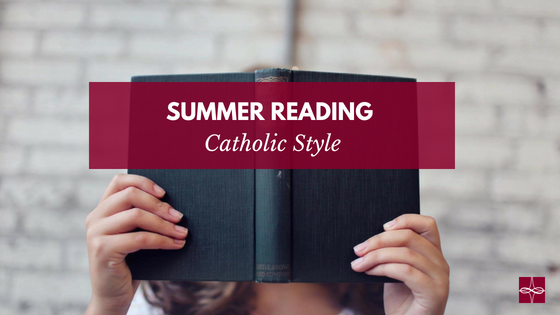

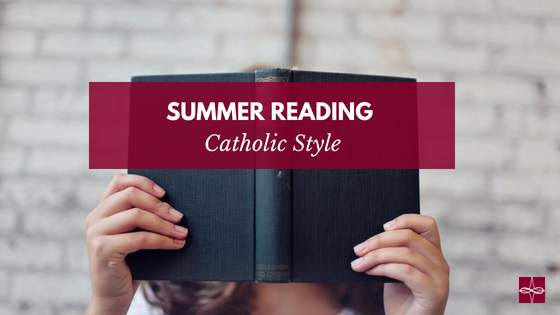



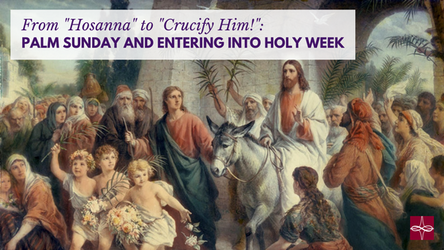

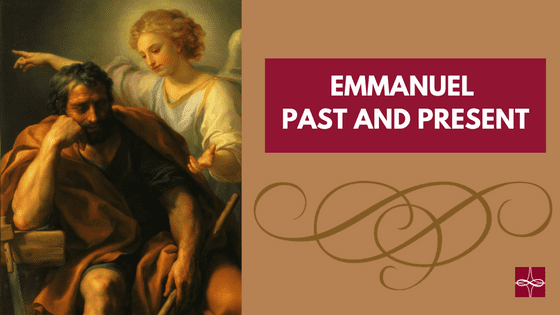
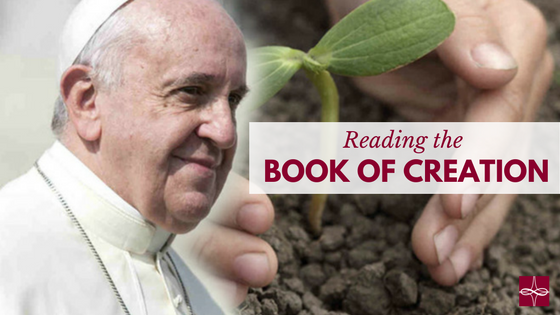
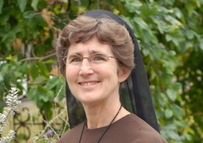
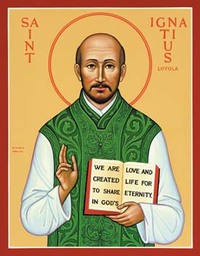
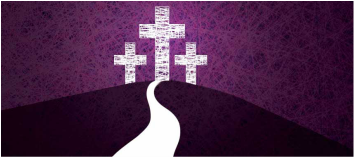
 RSS Feed
RSS Feed